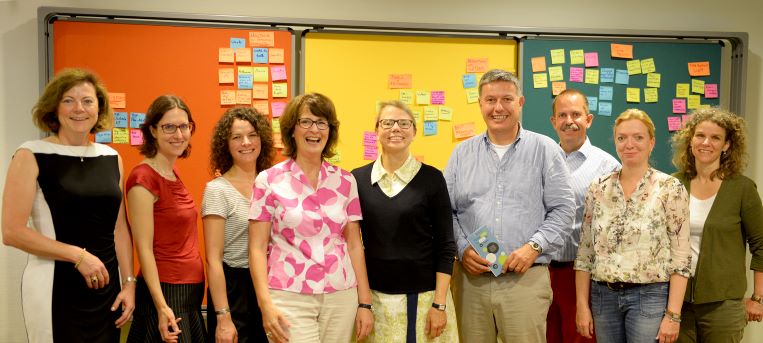Saturday, July 22nd 2017 at 11pm: we had written our book „Auf dem Weg: Erfahrungen mit Digital Leadership“ within only three days – and we could hardly believe what had happened. In the first Book Sprint about Digital Leadership we had experienced the famous agile teamwork and wrote a book for practitioners about the top topic of our time. That felt really cool.
“It was a learning journey of three days “ said Claudia Lerch, Deutsche Post – and that it was, because everyone of us had learned something. About the topic digital leadership, about ourselves, about different working styles, about agility, about virtual teams and our individual strengths and limitations. On the way we had been euphoric, skeptical, frustrated, optimistic, happy, silent, and at the end very proud that we had written a book that we all could identify ourselves with.
Our five success factors for agile teams
1. Who is in the team? – A crucial question
For a Book Sprint experts come together and jointly write a book in three days. With a facilitator on-site and a virtual team in the background including graphic designer, editor, and layout designer. The book content is generated in small groups and individually. All in three days. A best practice example for agile and virtual work.
So we needed the right people for the team who could contribute to the topic digital leadership and were open for the Book Sprint method. In the end, we had a team of experienced managers, convinced of the book idea, fascinated by the innovative method, with the right portion of risk-taking and looking forward to working in a new team.
All Eight non-digital-natives and some of them coming from large German corporations like Deutsche Telekom, Deutsche Post, WDR and Infineon Technologies. The result is a book for all who are in the midst of digital transformation.
Author team*: f.l.t.r.: Kerstin Günther, Ulrike Kempkes, Barbara Rühling (facilitator), Brigitta Wurnig, Claudia Hillebrand, Sebastian Moss, Ralf Bornefeld, Claudia Lerch, Denia Hegerfeld-Hellwig
2. Trust into the team
Everyone was open and curious to getting to know the other ones. The best base for building trust and forming a team out of a group of strangers. There was a fundamental trust that everyone could contribute to the topic and was willing to follow the process. No one played out his ego; instead, we quickly developed a team spirit focusing on the book as the most important.
Anytime one of us had a crisis, and each of us had a crisis during the three days – be it a writing blockade, tiredness, struggling with the topic – someone in the team was there to help, encourage, or bring some chocolate. We lived the “we-feeling”. Claudia Hillebrand, Infineon, said at the end of day three “I was glad that I was amongst one of the first ones being part of the Book Sprint”.
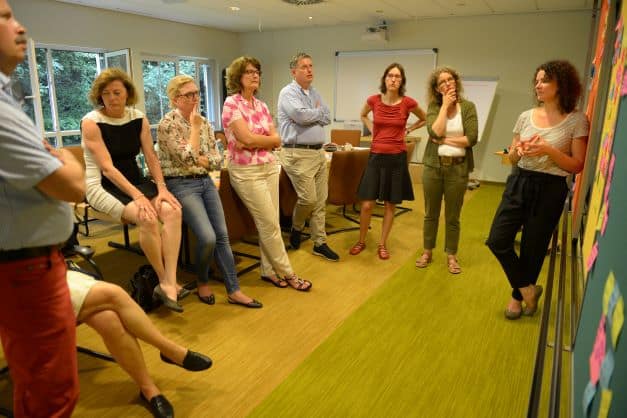
3. Trust the process
„Trust the process“ was the dictum of our facilitator Barbara Rühling. Easier said than done with eight experienced executives and coaches in the room that had seen many processes fail in the past.
Of course, there were ongoing discussions about the right next step how to write this book. Barbara always found the right balance for integrating the impulses from the team into the proved Book Sprint process. She asked us to work in groups and individually. She defined working packages and stirred the team to review every book chapter several times.
„A good method for slicing the elephant into pieces“ said Ralf Bornefeld, Infineon.
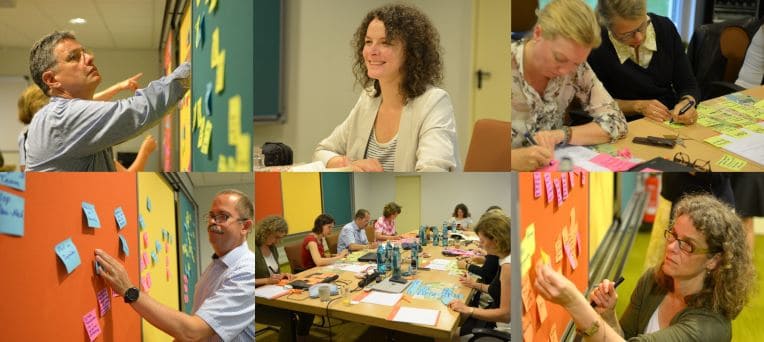
4. Let go and share
We wanted this book – with all means and all our energy. The second day it seemed impossible that we could really do it in three days. We had discussions all the time if certain topics should remain in the book or rather be deleted. In the afternoon, we recognized: In the end it was not about defending one’s own text but rather letting it go and share all content. We had to withdraw that we owned chapters or examples only because we had written them.
It became clear that this had to become our book and not a book with eight chapter-owners. Once we accepted this, the roadblocks disappeared and we worked on structure and content much easier. “At the end we created something new” Denia Hegerfeld-Hellwig, summarized.
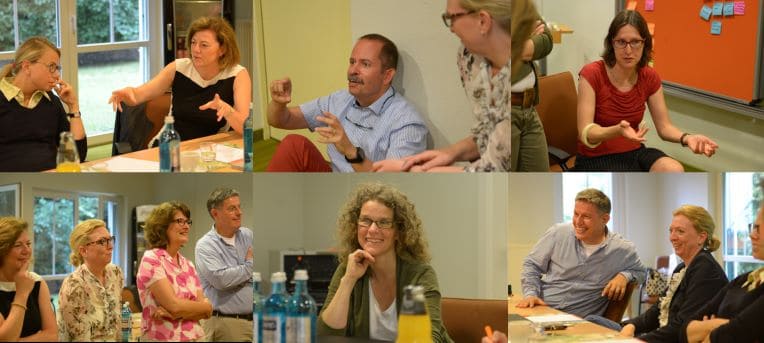
5. Concentrate on the most important
09:00 am on day three: We still had to clarify the topic motivation, re-read and edit all chapters, we still needed a book title and restructure the content table. “This is not going to work” probably everyone thought this morning.
Instead of despair and frustration, determination and concentration emerged. We split into groups with clear working packages, became braver in deleting content and took care of the time. Eight very focused team members sat around the table and interacted intensely.
It was clear that we would not get more time, so we focused all our force and energy on the book. Everything else became unimportant. “It was a pleasure.” Kerstin Günther, Deutsche Telekom, said about our collaboration.
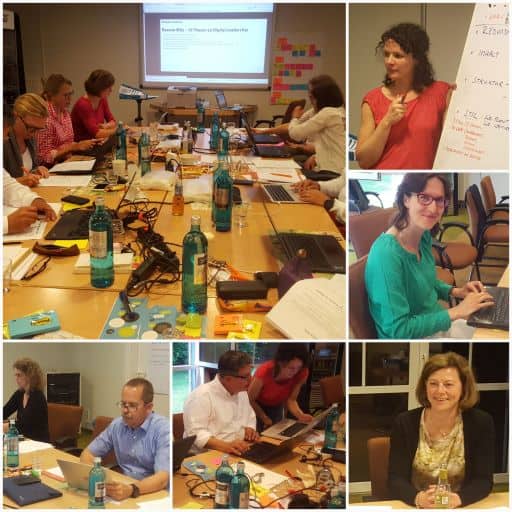
How about a second Book Sprint?
Yes, absolutely. We are all convinced of this agile method and very satisfied with the result. We contributed our experiences and food for thoughts about Digital Leadership to a very nice and practical book, and we are sure that other executives will benefit from it.
After a Book Sprint is before a Book Sprint – If you want to be part of our second BWC Book Sprint just send us an email and we will talk about it. Brigitta Wurnig is looking forward to your email: wurnig@brigittawurnig.de

